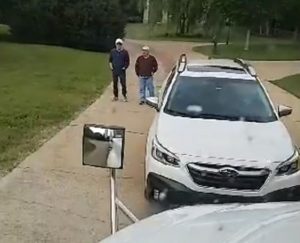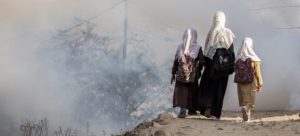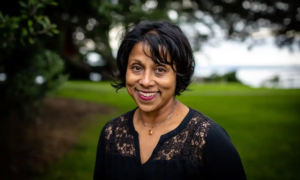WARNING: Aboriginal and Torres Strait Islander viewers are warned that this story includes images of an Indigenous person who has died.
A state funeral has been held in Adelaide for celebrated Indigenous leader Dr Lowitja O’Donoghue AC CBE DSG, attended by hundreds of family members, supporters, and dignitaries including the Prime Minister.
Dr O’Donoghue died aged 91 on February 4 surrounded by family on Kaurna country.
The ABC has been given permission to name Dr O’Donoghue and show her image.
Prime Minister Anthony Albanese, federal Minister for Indigenous Australians Linda Burney, Governor-General David Hurley, South Australian Premier Peter Malinauskas and South Australian Governor Frances Adamson were all present at the service at St Peter’s Cathedral in North Adelaide.
“I stand here, as a young, proud, Aboriginal woman of culture, on International Women’s Day,” Jakirah Telfer told those gathered, through tears.
“I want to thank [Aunty Lowitja] for believing in us, us young people, for believing in her community, and I want to thank her for everything she did for not only us, but this nation.
“For those who knew Lowitja, [they] knew she was the owl … that’s wisdom, [and] the owl, we don’t always know when it’s coming, the owl flies silent, but when it’s there, we know.
“When it’s there, it’s needed.
“Our nation needed her.”
Ms Telfer “shared the breath of the ochre”, creating a circle of smoke around Dr O’Donoghue’s coffin, which was adorned with a display of native Australian flowers.
National Aboriginal Bishop of the Anglican Church, the Right Reverend Chris McLeod, lead the religious service.
“We celebrate a life well-lived, we mourn and honour [Dr O’Donoghue], we trust the loving mercy of God … to deal reverently with her mortal body, and support her family and friends in their grief,” he said.
Speaking during the funeral, Prime Minister Anthony Albanese described Dr O’Donoghue as “one of the most remarkable leaders this country has ever known”.
“As we mourn her, we give thanks for the better Australia that she helped to make possible,” he said.
“Perhaps even more importantly, we reflect on the possibility of an even better Australia, which she placed so clearly before us.
He spoke of Dr O’Donoghue’s unrelenting faith in “meaningful and lasting reconciliation”.
“Consider the stony ground in which this faith somehow took hold,” he said.
“Dr O’Donoghue endured discrimination that would have given her every reason to lose faith in her country, but she never did.”
“The little girl who longed to be reunited with her mother somehow transcended the weight of her own experience, and grew into a woman of grace, moral clarity, and profound inner strength, a woman who grew up in hard country, yet emerged as a figure of such generosity.
“We celebrate [her] life of compassion, her life of courage, a life in which toughness and tenderness existed in perfect symbiosis.”
Dr O’Donoghue — a Yankunytjatjara woman and former Australian of the Year — fought endlessly for the rights of her people throughout her life.
As a young woman, she overcame entrenched discrimination to become South Australia’s first Aboriginal nurse, and later joined the South Australian branch of the Federal Office for Aboriginal Affairs.
That role marked the beginning of a lengthy career in public service, including as the founding chairperson of the National Aboriginal Conference (NAC) and later the creation of the Aboriginal Torres Strait Islander Commission (ATSIC).
In 1992, she became the first Australian Aboriginal person to address the United Nations General Assembly, and the following year played an instrumental role in negotiating Native Title legislation in the wake of the Mabo High Court decision.
Alyawarre woman and Lowitja Foundation chairperson Pat Anderson AO shared anecdotes of witnessing Dr O’Donoghue’s “characteristic toughness, honour and grace” at work in high-level negotiations, and detailed the “enormous contribution” of her “colleague and mentor”.
“Dr O’Donoghue had an extraordinary lifelong career of service [and] she played a leading role in many of the major political movements across her long lifetime,” she said.
“She came from very humble beginnings, and was, like all of us, subject to systemic racism.
“There’s a whole generation of First Nations women who flourished because of Dr O’Donoghue.
“[Her] intellect and determination demanded respect, always.”
Musical tributes were made by a choir inside the cathedral and Australian folk musician Paul Kelly.
Dr O’Donoghue’s niece Deborah Edwards reflected on her Aunty’s “fiercely independent and strong-willed” spirit.
“The collective hearts of our family are filled with sadness, that our beloved Aunty and Nanna has returned home,” she said.
Ms Edwards described her “Aunty Lowitja” as always being “ready for anything”, carrying a picnic basket and snacks, overnight bag, and needle-and-thread wherever she went.
She thanked staff who assisted in caring for Dr O’Donoghue in the final years of her life.




